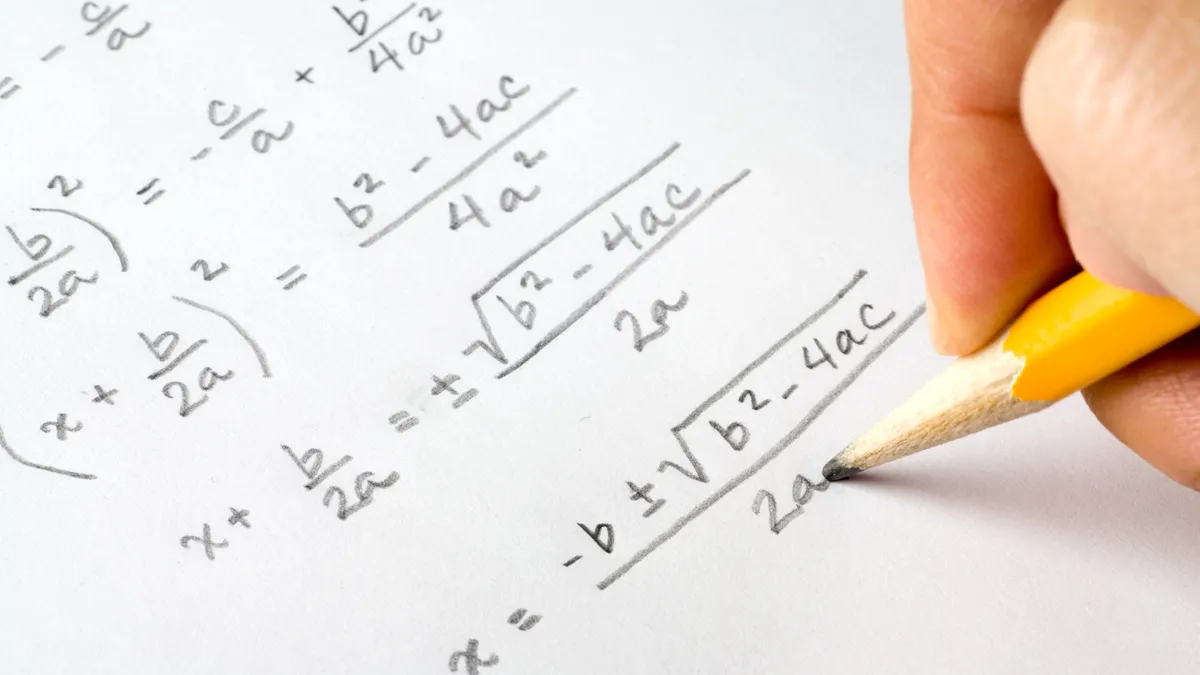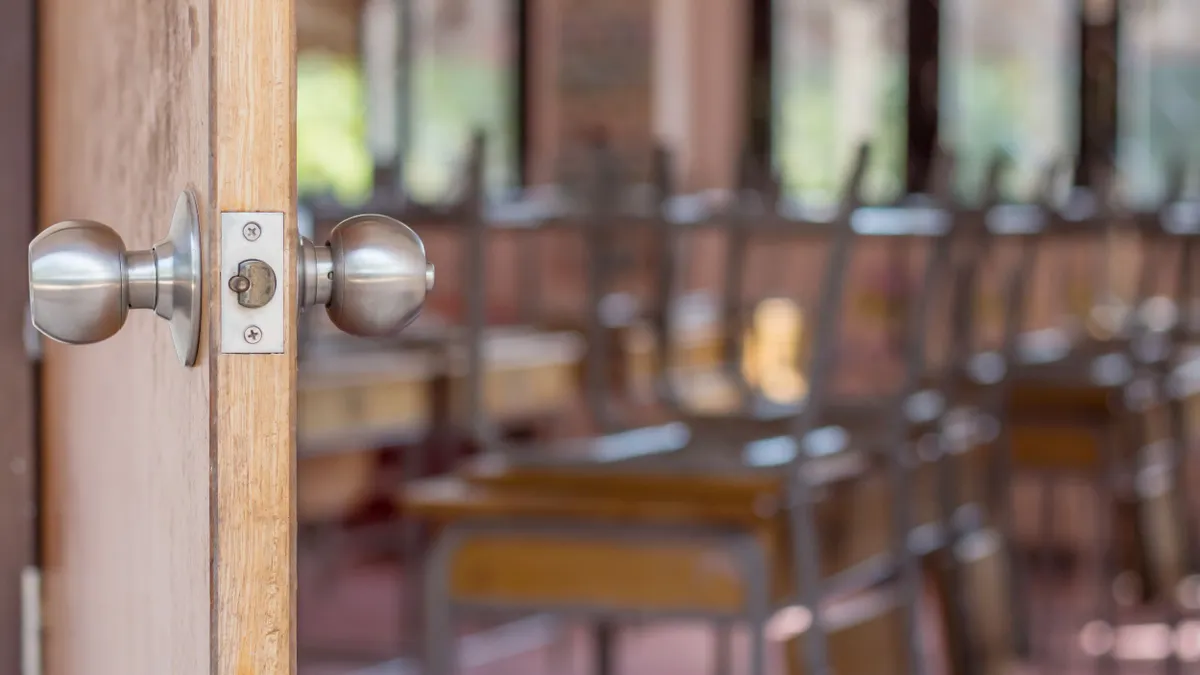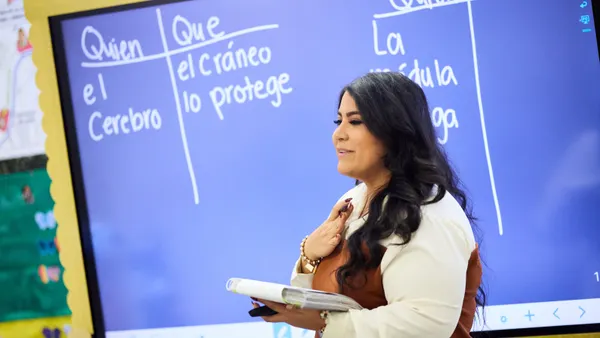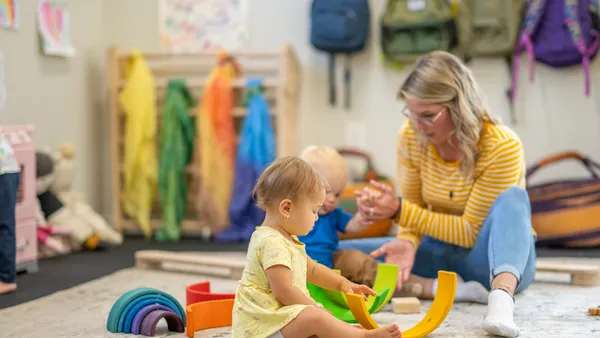Dive Brief:
- Although there’s ongoing debate about the best way to help students catch up to grade-level math, a new study from TNTP and New Classrooms suggests students make the most progress when instruction strikes the right balance between challenge and readiness.
- The study, funded by the Gates Foundation, analyzed three years of data from more than 2,000 math students who used learning nonprofit New Classrooms’ online platform Teach to One Roadmaps. The tool supplemented students’ core Algebra I classes by helping them practice both grade-level content and foundational algebra skills from earlier grades.
- Algebra I performance is a key indicator of future math success, but students often start the course with varying skill and knowledge levels, leading to significant learning gaps. According to results from the 2024 National Assessment of Educational Progress, only 28% of students nationwide were proficient in 8th-grade math.
Dive Insight:
“We have known for many years that we were sitting on a unique data set,” said Joel Rose, co-founder and CEO of New Classrooms, a student-centered learning nonprofit with a focus on math.
Rose said that while most studies focus on summative once-a-year test scores or formative scores that come in two or three times a year, Roadmap receives data every day. “We knew there was something to be learned about how kids learn math that transcended our program or the kids that we were serving, and really felt an obligation to try to learn what we could from that."
Using data from multiple grades, the study compared student progress in Teach to One Roadmaps with end-of-year state-administered tests. The data analysis found that students performed better on end-of-year tests as they mastered more skills and concepts from both current and previous grades, no matter their starting point.
Students who knew around four-fifths of the material were likely to meet expectations, while those who knew less than one-third rarely did, the study found.
“There is this blend between essentially understanding what students already know, and building from that,” said Adam Maier, analytics director for TNTP.
The study also found that students who started Algebra I with unfinished learning didn’t need to understand every concept and skill they missed in prior grades before attempting something new. Instead, focusing on only the most critical prior information meaningfully increased their chances of acquiring new algebra-related concepts and skills.
Mastering construct functions, function rules, and slope when given two points were the key predecessors identified for Algebra 1 success. The report states that the full list of key prior skills for Algebra I that emerged from the research may not be definitive, but can provide a starting place for educators and schools.
“It’s less effective to try to assume that every single skill or concept that's come before is necessary to have a good chance of success. There is a tighter group of linked skills, and many math educators probably have some idea of what those look like already,” said Maier.
According to the report, to help Algebra I students with unfinished learning succeed, schools must align Tier 1 (whole class) and Tier 2 (interventional) instruction. This requires targeted, individualized Tier 2 support that builds key foundational skills, close collaboration between core and intervention teachers, sufficient instructional time, and clear communication with students and families about learning goals and support strategies.
“The most important thing that we're trying to convey here is that high standards matter. We believe deeply in high standards, but students also need pathways to get there — and that's the role that Tier 2 can play,” said Rose.
Correction: A previous version of this story referred to the Gates Foundation by its prior name. We have updated our story.










